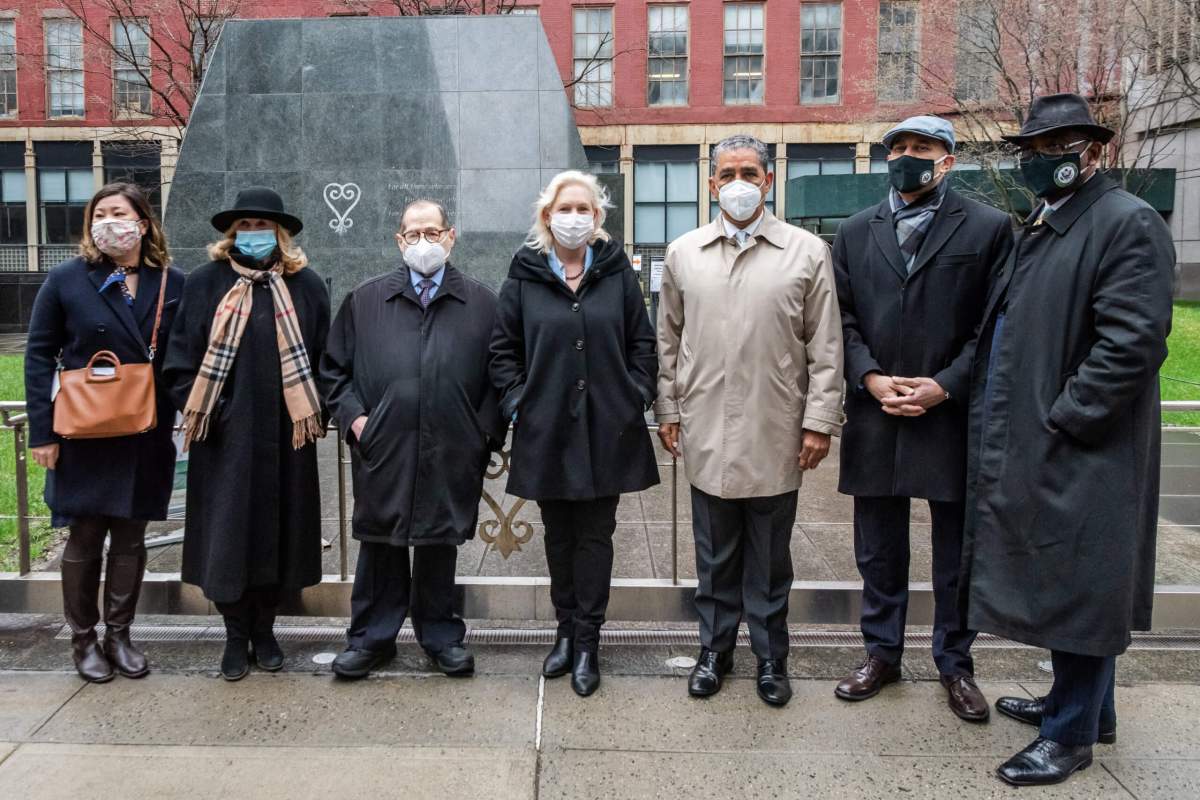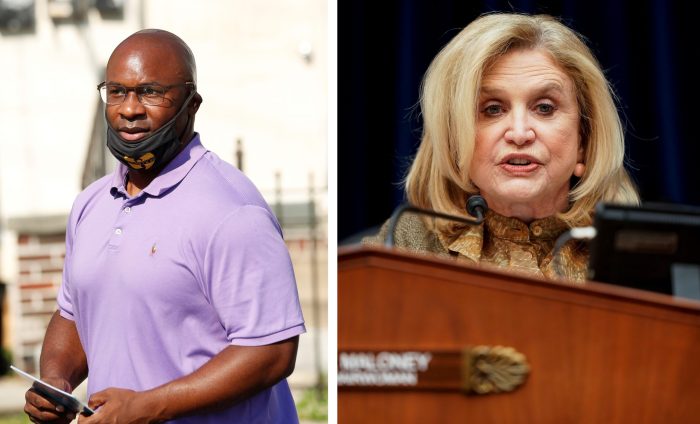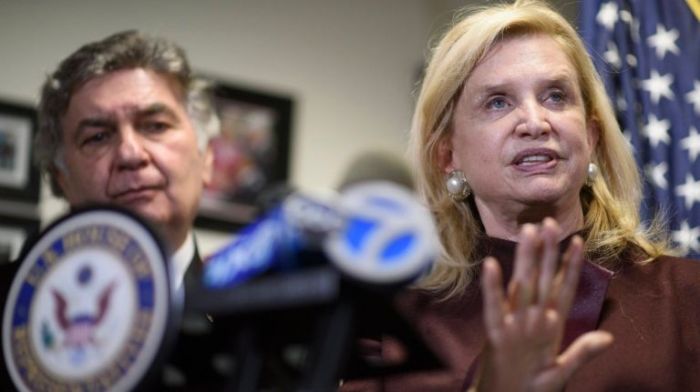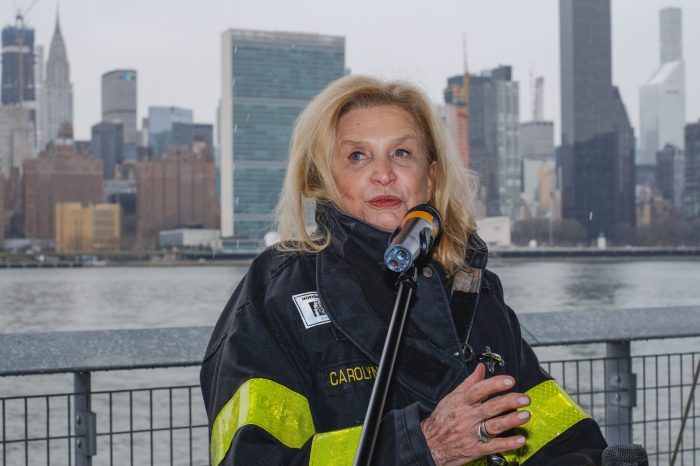U.S. Senator Kirsten Gillibrand and Congressman Jeffrey Nadler announced the reintroduction of the African Burial Ground International Memorial Museum and Education Center Act in Lower Manhattan on April 1.
They were joined by their colleagues, Congress Members Carolyn Maloney, Gregory Meeks, Hakeem Jeffries, Grace Meng, and Adriano Espaillat, who assembled outside the African Burial Ground National Monument, a cemetery located that is the final resting place of more than 15,000 free and enslaved Africans from the 17th and 18th centuries and the nation’s earliest and largest African American cemetery.
Gillibrand announced that the legislation would expand on the burial ground’s existing site and create the African Burial Ground International Memorial Museum and Education Centers.
The junior senator from New York recalled that the rediscovery of the burial ground in 1991 changed the understanding of the state’s history of enslavement, serving as a reminder that Americans still have much to learn about the history and legacy of slavery.
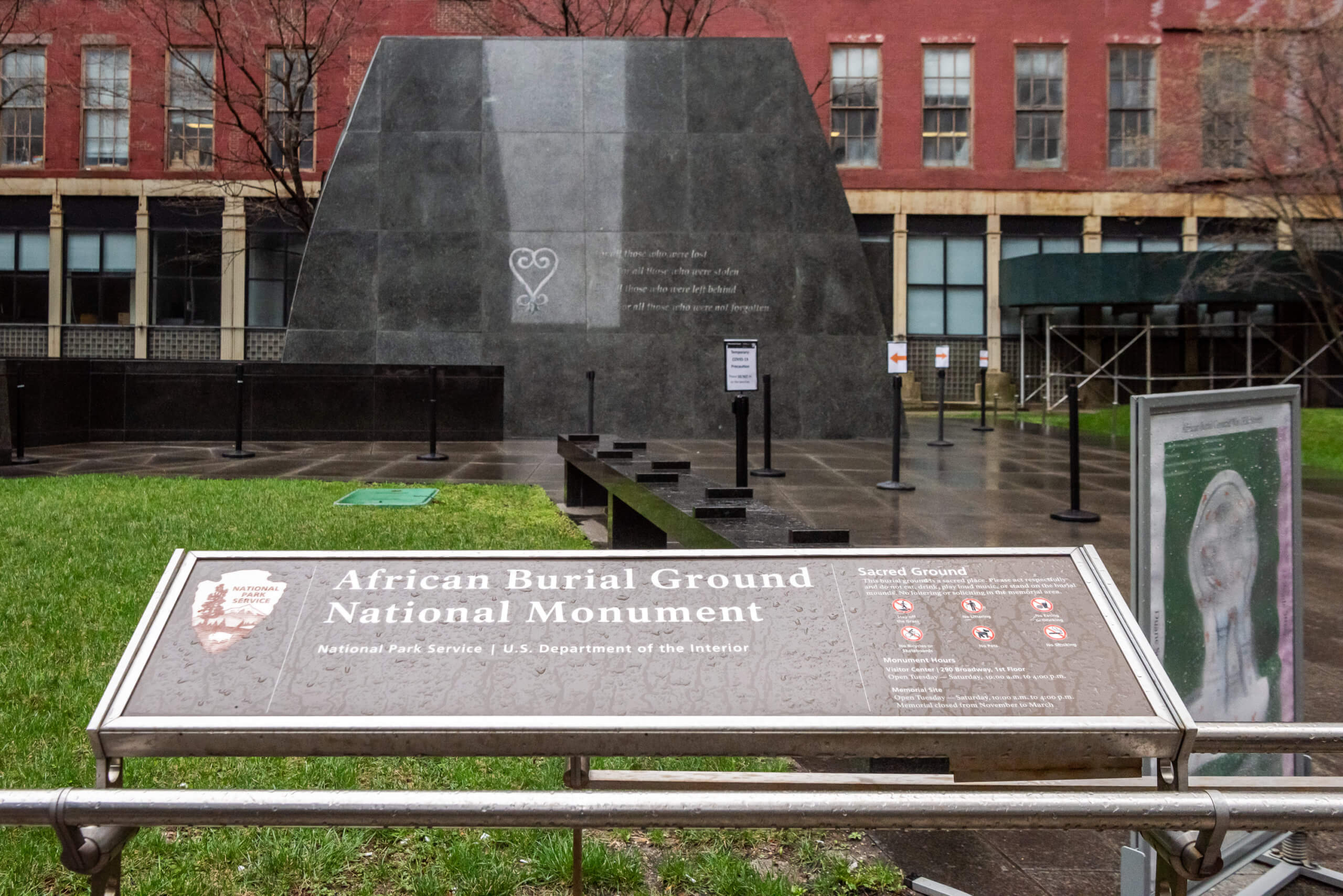
Its importance is greater than ever, she explained.
“The museum would create a new venue where we can grow our understanding of the true history of our nation, our state, and at the institution of slavery in the United States and around the world,” Gillibrand said. “At this moment in time, where we are having a reckoning, as a country, on the justices and inequalities the African American black communities have been subjected to from the earliest days of our nation today. This museum and educational center could not be more important.”
The museum would house a collection of artifacts and documents and provide a place to share DNA research tracing the home and ancestral countries of the individuals buried at the African Burial Ground.
It is planned that the museum serves as a sister site of the National Museum of African American History and Culture in Washington DC, hosting complimentary exhibits and fostering collaboration between the two museums and other museums as well as historically black colleges and Universities.
Nadler, who sponsors the bill in the House of Representatives, said that he was proud to reintroduce the legislation alongside his colleagues Maloney, Meng, Meeks, Jeffries, and Espaillat, who are co-sponsors of the bill.
He urged that it was vital to pass the legislation to preserve, protect, and share America’s history for future generations and emphasized that while slavery was a worldwide institution during colonial times, it still existed in some parts of the world. Nadler hopes that the museum will serve as a beacon of freedom and hope against slavery today in all its forms.
“We cannot successfully fight for equality without a clear understanding of the history of slavery in this country. The development of a shared history is not spontaneous. It takes work, dedication, and respect to those who write it,” said Nadler, who also serves as chairman of the House Judiciary Committee.
Maloney pointed out that they were standing at a sacred and historic site and demanded that the slaves brought to this country are given the recognition and respect they deserve. She believes that education is the answer to many challenges and teaches tolerance and understanding.
“We must remember the free and enslaved Africans and older generation African Americans who helped build our great city and our great nation. This has a very important educational center attached to it, which will create an essential resource for educating the public and students about our nation’s sad legacy of racism and bigotry,” the former teacher underlined.
Meeks, from Queens, remarked that he could feel the souls of the slaves buried at the site and relived his visit to Ghana and The door of No Return, where Africans were kept like animals and were forced to board a ship to America.
The congressman admitted that he was full of emotions while the murder trial of Derek Chauvin, the Minneapolis officer who killed George Floyd in May 2020, was underway. But the congressman from Queens was also full of joy. His daughter had just given birth to his granddaughter, and he thought of the connection between the slaves who survived the Middle Passage and her.
“If it wasn’t for those brave souls that were able to withstand the Middle Passage, and then deal with all of the racism, the enslavement, the Jim Crowism that existed in this country. If they couldn’t maintain and succeed, my second grandchild could not be here, I would not be here,” he expressed and continued,
“So, this is just not an ordinary piece of legislation. This is not just any regular ceremony to me. This is really emotional. This is really important!”
Jeffries pointed out that the African Burial Ground they were standing on revealed the reality of the country, and while it has come a long way in its fight against racism, a lot of work still needed to be done.
“We cannot tell the true American story without lifting off, and recognizing the sacrifice, the pain, the suffering, and the death that enslaved Africans, endured,” the congressman from Brooklyn said. He pointed out that America was born as a nation of high ideals but suffered from a birth defect when it committed one of the worst crimes against humanity and referred to the burial site.
“It also represents the struggle, the perseverance, the journey, the ability to overcome trials and tribulations. That is why it is so important that we have a permanent and living and accessible memorial and museum for those enslaved Africans who are buried right here. This effort represents truth and a continuation of our journey toward a more perfect union,” Jeffries said.
Meng from Queens said that she was proud to co-sponsor the measure, and she would do everything in her power to ensure its passage and enactment into law.
“This bill is critical to ensuring we pay our respects to those who built our city and our nation. We owe it to them. And this country, to ensure that future generations of Americans know of our painful and sad history,” Meng said.
Espaillat said he was happy to be associated with the effort to give a voice to the slaves who were stripped of their identity, keeping them forever anonymous.
“So we are here to break with the effort to keep the identity of those in bondage anonymous. To give them a proper and holy and solemn place in our city, in the history of our nation. This site will give everyone an identity,” Espaillat said.



